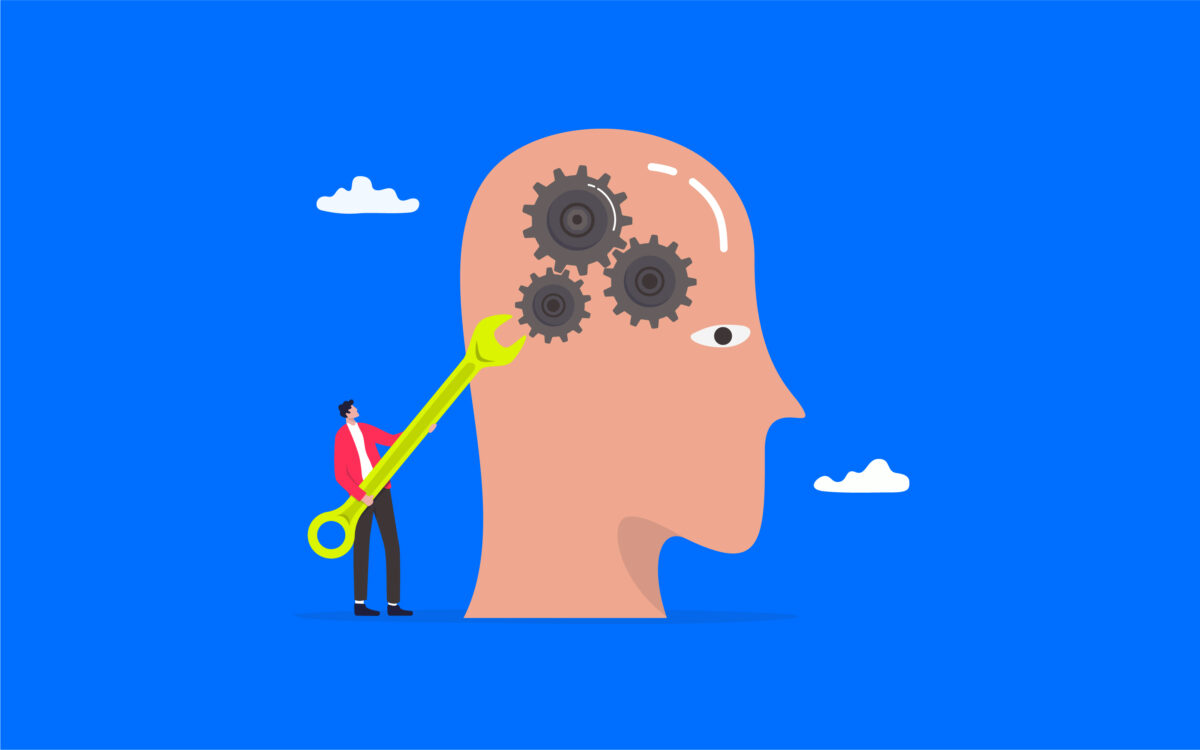Exploring the Link Between Nourishment and Mental Health And Wellness Improvement
In the world of mental wellness, the influence of nourishment is a topic of growing interest and research. The intricate interaction between what we eat and just how we feel expands much beyond mere physical health. The ramifications of our nutritional selections on mental well-being have actually been increasingly identified by health and wellness specialists and scientists alike. As we navigate the complex landscape of modern way of livings, discovering the nuanced connection in between nutrition and psychological wellness renovation may hold the secret to opening a much deeper understanding of our cognitive and emotional strength.
Influence of Food on State Of Mind
The connection in between dietary choices and state of mind regulation is a crucial facet of understanding the impact of food on psychological health. Research study has shown that particular foods can affect natural chemical task, influencing mood and moods. Foods abundant in omega-3 fatty acids, such as fatty fish, walnuts, and flaxseeds, have actually been connected to reduced rates of depression and enhanced state of mind guideline.
Furthermore, complex carbohydrates located in whole grains, fruits, and vegetables can assist control blood glucose degrees, which consequently can have a positive effect on state of mind stability. On the other hand, diets high in processed foods, sugar, and saturated fats have been connected with an increased threat of clinical depression and state of mind problems.
In addition, the gut-brain link plays a significant duty in mood policy. The gut microbiome, influenced by the foods we eat, can connect with the brain through the gut-brain axis, impacting state of mind, anxiety levels, and overall mental well-being. Making mindful and nourishing nutritional choices is vital for keeping a healthy and balanced mood.

Vital Nutrients for Anxiety

In addition, the amino acid tryptophan, found in foods like turkey, eggs, and nuts, is a forerunner to serotonin production, a natural chemical known for its function in advertising feelings of calmness and well-being. Vitamin B complex, specifically B6 and B12, are also important for preserving a healthy and balanced nerves and may help in reducing stress and anxiety signs.
Including these vital nutrients into a healthy diet can have a positive effect on managing anxiousness and enhancing general psychological health and wellness.
Dietary Techniques for Clinical Depression

One dietary technique for managing anxiety is concentrating on foods abundant in check omega-3 fats, such as fatty fish, flaxseeds, and walnuts. Omega-3 fats have actually been connected to reducing swelling in the mind and boosting neurotransmitter function, which can positively affect mood. In addition, enhancing the consumption of fruits, vegetables, entire grains, and lean a knockout post proteins while lowering the intake of processed foods and sugars might help in minimizing depressive signs.
Furthermore, keeping adequate levels of vitamin D, either via sunlight direct exposure or supplements, is vital for supporting mental wellness. Vitamin D shortage has been connected with an enhanced danger of clinical depression, making it crucial to make sure sufficient consumption of this nutrient. By incorporating these nutritional approaches, people may successfully complement standard therapies for clinical depression and enhance their overall health.
Gut-Brain Axis and Mental Wellness
Concentrating on the complex link in between the intestinal system and mental health, the Gut-Brain Axis plays a pivotal role in influencing cognitive features and psychological well-being. The Gut-Brain Axis is a bidirectional interaction network in between the main nerves and the enteric worried system, connecting the emotional and cognitive facilities of the mind with outer intestinal tract features. This axis is managed by a detailed interaction of neural, immune, endocrine, and metabolic paths.
Research study recommends that the composition of digestive tract microbiota, the diverse area of microorganisms living in the gastrointestinal tract, can have a profound effect on mental wellness. Imbalances in digestive tract microbiota, called dysbiosis, have been linked with problems such as depression, stress and anxiety, and even neurodegenerative diseases. The digestive tract microbiota plays read review an essential duty in the production of natural chemicals like serotonin, which is necessary for regulating mood and psychological feedbacks.
Keeping a healthy digestive tract microbiota through a well balanced diet plan rich in fiber, fermented foods, and probiotics is important for supporting psychological health and wellness (Mental Health Services). Strategies targeted at enhancing the Gut-Brain Axis provide promising opportunities for enhancing psychological health and cognitive feature
Nutrition's Duty in Cognitive Feature
Provided the substantial impact of the Gut-Brain Axis on mental health, recognizing exactly how nourishment effects cognitive function ends up being vital in promoting general health. Nourishment plays a critical role in cognitive function by offering important nutrients that sustain mind health and wellness and optimal performance.
Secret nutrients such as omega-3 fats, minerals, vitamins, and anti-oxidants are known to improve cognitive capacities, consisting of memory, focus, and analytic abilities. Omega-3 fatty acids, found in fatty fish like salmon and nuts, have actually been linked to improved memory and cognitive function. Antioxidants, abundant in vegetables and fruits, assistance safeguard mind cells from damages brought on by free radicals, therefore preserving cognitive function.
In addition, a well balanced diet rich in whole grains, lean healthy proteins, fruits, and veggies can favorably impact cognitive function by stabilizing blood sugar level degrees and providing sustained energy to the brain. Alternatively, diets high in refined foods, saturated fats, and sugars have been related to cognitive decline and impaired mind function. For that reason, making notified dietary options is necessary for keeping optimum cognitive function and general mental health.
Verdict
In conclusion, the partnership between nourishment and mental wellness is multifaceted and intricate. Comprehending the link between nutrition and psychological wellness improvement is essential for advertising total wellness and attending to psychological health problems.
The effects of our nutritional choices on mental well-being have actually been progressively identified by health and wellness professionals and scientists alike. As we navigate the complex landscape of modern way of livings, uncovering the nuanced connection in between nutrition and psychological wellness improvement might hold the trick to opening a much deeper understanding of our cognitive and emotional strength.
Structure upon the important nutrients that support psychological wellness, specifically in managing stress and anxiety problems, the focus now changes in the direction of examining nutritional techniques for resolving anxiety.Concentrating on the elaborate connection between the intestinal system and psychological wellness, the Gut-Brain Axis plays a pivotal function in affecting cognitive features and emotional wellness (Mental Health Services). Comprehending the connection between nourishment and psychological health and wellness improvement is necessary for advertising total health and addressing mental health issues